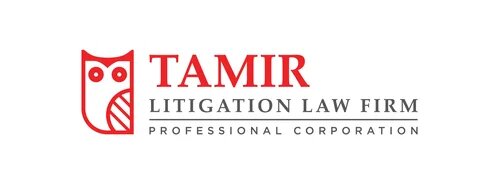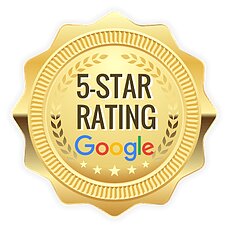Best Job Discrimination Lawyers in Canada
Share your needs with us, get contacted by law firms.
Free. Takes 2 min.
Or refine your search by selecting a city:
List of the best lawyers in Canada
About Job Discrimination Law in Canada
Job discrimination in Canada is governed by a series of federal and provincial laws aimed at ensuring fair treatment for all employees. Discrimination in the workplace occurs when unfair treatment is meted out based on personal characteristics such as race, gender, age, religion, sexual orientation, or disability. The Canadian Human Rights Act at the federal level, along with various provincial human rights codes, prohibits discrimination in hiring, compensation, promotions, job training, and dismissal, among other employment practices.
Why You May Need a Lawyer
Legal assistance may be necessary in several situations involving job discrimination. You may need a lawyer if you experience harassment in the workplace related to discriminatory grounds, such as racial or gender-based harassment. Additionally, if you believe you have been unfairly passed over for a promotion, wrongfully terminated, or subjected to unequal pay due to discrimination, a legal professional can help you explore your options. Lawyers can assist with navigating complex human rights complaints, negotiation processes, or representing you in employment or human rights tribunals.
Local Laws Overview
Canadian job discrimination laws are rooted in the Canadian Human Rights Act, which applies at the federal level to organizations under federal jurisdiction. Each province and territory has its own human rights code, such as the Ontario Human Rights Code, Quebec's Charter of Human Rights and Freedoms, and the British Columbia Human Rights Code. These laws collectively expand protections against discrimination in the workplace, making it unlawful for employers to treat individuals unfairly on protected grounds or to retaliate against someone for filing a complaint. Employers in Canada are also mandated to accommodate employees' needs up to the point of undue hardship, which includes making reasonable adjustments to work environments.
Frequently Asked Questions
What is considered job discrimination in Canada?
Job discrimination in Canada includes treating an employee unfairly based on protected characteristics, such as race, gender, age, disability, religion, sexual orientation, family status, or any other ground specified in human rights legislation.
What steps should I take if I experience discrimination at work?
Document the incidents in detail, report the behavior to your employer or HR department, and explore internal resolution options. If issues persist, you might consider filing a human rights complaint or seeking legal advice.
Can I file a discrimination complaint if I am a contract worker?
Yes, the protections against discrimination apply to all types of employment relationships, including contract, temporary, and full-time positions, depending on the jurisdiction.
Is there a time limit to file a job discrimination complaint?
Yes, time limits vary by jurisdiction but typically range from six months to one year from the date of the discriminatory act. It is essential to consult the specific human rights legislation relevant to your province or territory.
Can I be fired for filing a discrimination complaint?
No, it is illegal for an employer to retaliate against an employee for filing a discrimination complaint. Such actions would constitute further discrimination, and additional complaints may be raised.
What is the duty to accommodate?
The duty to accommodate requires employers to adjust work conditions or tasks to enable employees to perform their jobs without discrimination. Accommodations may include modifying schedules or equipment and should be provided unless they impose undue hardship on the employer.
What is considered undue hardship for an employer?
Undue hardship refers to the limit of an employer's duty to accommodate when adjustments become excessively costly, compromise safety, or negatively affect the organization significantly. Each situation is context-specific.
Can I resolve a discrimination issue without legal proceedings?
Yes, many issues are resolved internally within the organization or through mediation services provided by human rights commissions. Legal proceedings are often a last resort if other solutions fail.
Do I need a lawyer to file a complaint with a human rights commission?
No, you do not need a lawyer to file a complaint; however, having legal representation can help navigate the process and improve the chances of a favorable outcome.
What compensation am I entitled to if I win a discrimination case?
Compensation may include lost wages, reinstatement of employment, damages for pain and suffering, and reimbursement for related costs. The specific awards depend on the case details and jurisdiction.
Additional Resources
There are several resources available for individuals seeking advice or support regarding job discrimination in Canada. The Canadian Human Rights Commission offers guidance and accepts complaints at the federal level. Each province has its own human rights commission, such as the Ontario Human Rights Commission and the British Columbia Human Rights Tribunal, which provide resources and complaint resolution mechanisms. Legal clinics and services like Pro Bono Ontario and the BC Employment Standards Branch may also offer advice and representation to those eligible.
Next Steps
If you believe you have experienced job discrimination, it is crucial to act promptly. Start by documenting all relevant incidents and attempt to address the issue with your employer through official HR channels. If internal solutions are ineffective, consider reaching out to your local human rights commission or a legal professional specializing in employment or human rights law. Legal consultations can provide clarity on your rights and possible courses of action, including filing complaints or pursuing litigation. Remember to check the time limits for filing complaints in your jurisdiction to ensure timely action.
Lawzana helps you find the best lawyers and law firms in Canada through a curated and pre-screened list of qualified legal professionals. Our platform offers rankings and detailed profiles of attorneys and law firms, allowing you to compare based on practice areas, including Job Discrimination, experience, and client feedback.
Each profile includes a description of the firm's areas of practice, client reviews, team members and partners, year of establishment, spoken languages, office locations, contact information, social media presence, and any published articles or resources. Most firms on our platform speak English and are experienced in both local and international legal matters.
Get a quote from top-rated law firms in Canada — quickly, securely, and without unnecessary hassle.
Disclaimer:
The information provided on this page is for general informational purposes only and does not constitute legal advice. While we strive to ensure the accuracy and relevance of the content, legal information may change over time, and interpretations of the law can vary. You should always consult with a qualified legal professional for advice specific to your situation.
We disclaim all liability for actions taken or not taken based on the content of this page. If you believe any information is incorrect or outdated, please contact us, and we will review and update it where appropriate.
Browse job discrimination law firms by city in Canada
Refine your search by selecting a city.















